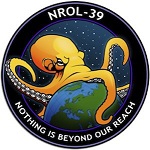Article highlights:
The rock, nicknamed Cheyava Falls, has three critical features:
- First, white veins of calcium sulfate are clear evidence that water once ran through it.
- Second, the rock tested positive for organic compounds, which are the carbon-based building blocks of life, as we know it.
- Third, it’s speckled with tiny “leopard spots” that point to chemical reactions that are associated with microbial life here on Earth.
However, both the organic material and the leopard spots could have come from non-biological processes.
The rover has reached the limit of what it can learn about the rock.
They go on to say that the confidence in biosignature detection could be elevated significantly if the rock were brought back to Earth for closer study. And, it’s implied that doing so would be a worthwhile endeavor.
Thank you for the highlights. This is an exciting discovery!
Also, it will be returned to earth. All the perseverance samples will eventually be returned in a later mission.
Has the money actually already been allocated though? Because nothing’s final until it’s launched.
Nasa had a perfectly good moon buggy that they’ve had to scrap for no good reason, so just because it’s on the cards doesn’t mean it’ll definitely happen.
Well, that’s unfortunately true… The good news is that there’s no time limit. The samples can wait as long as they have to. I doubt we’ll just forget about them.
Also good, the rover is sitting on Mars, the bean counters can’t disassemble it there.
the win that NASA needs is to stop having their budget slashed
But privatization makes everything better 🤢
Privatization done right can make things better, but done badly it always always makes things infinitely worse. It’s almost always done badly though, by bureaucrats with vested interests.
Privatization typically prioritizes shareholders over the general public. Many things are good in theory but god awful in reality, and privatization is one of those things. It actively encourages greed and predatory practices.
Even if done “right” privatization is the wrong choice for a lot of things. Like everything that should be a service for all citizens: postal service, health care, water, electricity, …
When greed is introduced into these services people will suffer for it. Just look at all the examples of privatizations and show me where the outcome was positive for the people.
“badly needed win” fuck off
The title is inflammatory, but makes a good argument about how budget cuts have robbed us of several potential missions lately.
They need to eject those inflammatories out a ~15° cone half-angle nozzle
This is exciting! Even if its not microbes its a fascinating find & a win for science.
Though I hate how a someone remotely piloting science experiments via a rover on friggin’ mars has to worry about how “NASA needs this win”. What is the point of humanity if we don’t explore our universe! I find it it so frustrating.
I hope that one day, science can be a goal on it’s own. Not just to gain profit or funding.
a goal on its* own
From the point of view of the universe, humanity has no point beyond what ants or elephants do on Earth.
But yeah. From the point of view of humanity, I agree with you. Having said that, Nasa is not the only agency exploring space.
Does NASA really need to “score a win” or is that just click bait?
Yeah, unfortunately.
They’re a popularity based branch. You gotta clap to keep them alive.
“Please clap”
Sure, but that headline is there for Business Insider’s benefit. If it helps Nasa, cool. But I don’t think Business Insider cares about what Nasa is doing beyond the fact that it may drive traffic to them.
Did you read the article?
Yes. If they were quoting Nasa saying “We needed this win,” I would stand corrected. But nope. It’s BI using the term “win.”
Let me know if I have to repeat myself again.
It’s not clickbait, it’s language.
They have an entire section on this and explain it, it isn’t really hyperbole.
Had they not mentioned or explained the language they used then I’d agree.
NASA depends on funding from the government
And the government accepts cool rocks in trade?
Sadly, yes, if the rocks generate enough interested congresspeople.
Yeah, they’re already stocked on space noodles, unfortunately.
The article actually goes into detail on that point.
Goddamnit. Can you imagine being alive at a time when we finally confirm that life is not unique to Earth? I’m going to lose my shit.
Every time there is claim that Earth is some unique snowflake we are eventually proven wrong.
Some things that were said to be unique to Earth include being the center of the universe, being the only planet with a moon, being in a solar system, having an atmosphere, etc.
Yeah, we will eventually find life on Mars. Or at least solid confirmation that it did exist at some point.
Even if we find out Mars has always been lifeless, we’ll find it somewhere eventually. I’m also convinced we’re going to find something clearly alive (or that was once alive) that completely redefines our entire idea of life. Dunno what that could be, but like you said, every time we think something is unique, we find out it ain’t. Our definition of life is going to turn out to be too narrow, eventually.
I expect we will find carbon based life, but since we have such variety between life on Earth odds are the Martian life will be something completely new. I mean the odds of finding this was decent being on the edge of an ancient riverbed, but still finding it with one small rover suggests that it might not be that uncommon!
Right now, conditions are not right for liquid water to exist on the surface of Mars. Atmospheric pressure is too low, water goes from ice directly to vapour with no liquid phase in between. “Life as we know it” requires liquid water as a medium. Possibly at the bottom of the deepest valleys on Mars or deep (like km) underneath the surface we might still find remnants of life.
What we will most likely find on Mars with our rovers is a history of life once existing. Life, from a billion years ago when it was warmer and wetter and plate tectonics still worked and essential chemicals weren’t locked up in rocks.
Possibly at the bottom of the deepest valleys on Mars or deep (like km) underneath the surface we might still find remnants of life.
Or even a few yards under the surface! As long as it was able to evolve into something that breaks down minerals and can produce energy without sunlight it just needs enough moisture and an energy source to reproduce.
It depends on time and distance. We may never find life, even if there’s a lot of it out there. This would be the case even if we had a lot of time and the ability to travel fast, but it is especially unlikely if we destroy our our capacity for technology through, for example, climate change-induced societal collapse or nuclear war. And that’s the road we’re presently on.
I want to raise a little alien farm at home.
So NASA needs aliens in order to justify its existence? The original remit was simply to reach the moon, and there were definitely no aliens there.
It’s pretty unfortunate that with all NASA has done to expand and improve technology, society, humanity, science, the continued benefits in our day to day lives, that funding it can be so controversial. It’s such a tiny fraction of the budget already and continues to do so much - how does it become a target?
Let’s also look at space stations for similar negativism. Why are so many stories talking about destruction of ISS, and end of humans in space? NASA is planning on retiring the ISS and yes it’s a huge effort to do so safely. But how is it not inspiring, to be planning a space station orbiting the moon instead? How is it not inspiring that NASA is working with private companies such that we might have multiple space stations? This transition really could be a new era of humans living and working in space, if we let it
Not even American but the underfunding of NASA is criminal, firstly because iirc it has something like a 5:1 return on its funding when you account for the economic benefits of all the research it does that filters into the private sector.
Secondly because it has great PR that really gets people engaged with space science. Before James Webb the ESA launched two telescopes of similar important, one radio one that produced the best map of the CMB we have to date and another one where I can’t even remember what it does just that it was also groundbreaking in its field/spectrum. Which is the point, we all should have been excited about those telescopes when they launched but I can’t even remember their names or what one of them even did, I can remember James Webb though because NASA did the PR work and that’s incredibly telling.
“Cosmic Vision” would have been a great opportunity to sell the overall plan better, big enough to afford marketing, expensive enough overall to need marketing. Let’s all get excited and share a
That title really hurt me.
Yup. Same.
Ah, yes. From trusted anti-sensationalist science-based publication… er, uh… Business Insider?
Contrarian opinion:
Discovering that Mars once had life would be bad for NASA. It would mean that human exploration of Mars might not be allowed as it could contaminate the evidence.
And it would be terrible for humanity, according to Kurzgesagt, because it would indicate that we may soon go extinct.
I mean it’s not like Human exploration of Mars is even viewed as remotely doable right now.
And I think there are more glaring signs here on earth that we may not be around much longer.
More glaring than a million alien species that should exist, simply not existing?
That’s a lot of life to discount.
Humanity is doing a fine-enough job causing problems for itself without dead aliens. They probably wouldn’t even make the top 5 extinction-level issues we could have.
I think you’re missing the point, they point to our extinction by our own hands. If millions of alien species have tried to survive through an era of technological advancement, and all of them have failed, that suggests that we don’t have much chance of surviving either. We’ll probably fall into the same talks that all of them have.
If on the other hand, we saw lots of alien civilizations existing somewhere out there, or even some civilizations, that would suggest that as long as we don’t totally screw things up, we at least have a chance. Survival is at least possible.
And while it may look like we’re screwing it up, to be honest, things aren’t so bad. There have been a lot of mass extinctions on this planet, but there’s still life. The planet has both been much cooler and much hotter at various times in the past, there’s still life. There’s really no guarantee that we’re going to kill ourselves, things could turn out fine. But on the other hand, what we’re seeing when we look around the galaxy is not super encouraging…
It’s okay, they also say we might be ahead of the great filter. We’re more than just life, we’re physically super complex.
No it’s not.
Don’t get me wrong, I’m all for NASA, it should get it’s budget increased by x20 if you ask me, bit they didn’t find alien life or anything remotely to it.
Not until there is actual evidence.
This isn’t the first time that ALIENS is being screamed from NASA and it’s getting annoying. Last time it was from Venus, a planet famous for a number of things, one of them being it having a lack of Hydrogen, making anything alive pretty much impossible. After the fanfare of some chemical components that “could only be created by alien microbial life!” it was just ignored because of course it wasn’t alien life.
This too will just quietly be ignored, it seems to be a desperate gasp for breath as their budget slowly gets cut to zero.
Is NASA the one screaming AlIeNs!1 or is it shitrags like Business Insider taking ‘maybe we found some microbes’ and turning it into AlIeNs!1?
Nasa has made more than one shady headline about aliens themselves
No, what’s annoying is people willfully misreading the science being published here. NASA does not claim to find alien life, they claimed to find an interesting rock with an unknown formation process consistent with microbial life in Earth rocks. People like the article writer vastly overstate what NASA is claiming.
I refuse to believe that we are the only living beings in the entire universe.
Oh I didn’t say we aren’t. I’m sure there are aliens.
I’m just saying that all these “ALIENS!” headliners from Nasa are bullshit
Mars obviously ain’t worth shit, we have a lot of other planets to investigate and we are over here looking for artifacts and fossils
It’s the most earth-like planet in our solar system. So we’re naturally interested in it…
Pretty sure Venus is the most Earth-like. Well, besides Earth itself.
I’d say not at all. Venus has an atmosphere 92 times denser than ours filled with sulphuric acid, its average temperature is hot enough to melt lead (455°C/850°F), probes sent there never lasted more than two hours before being completely destroyed, and it for some reason rotates backwards compared to other planets.
Mars doesn’t have any of these issues and mostly resembles a cold desert with a very thin atmosphere, so it’s far similar to Earth than Venus is.
I’m not saying Venus would be easier to colonise than Mars, but just the fact that it has a dense atmosphere while Mars barely has any should tell you it’s much more Earth-like. Size and gravity is also significantly closer to Earth than for Mars which is relatively tiny.
Fair enough! That’s a good point.














